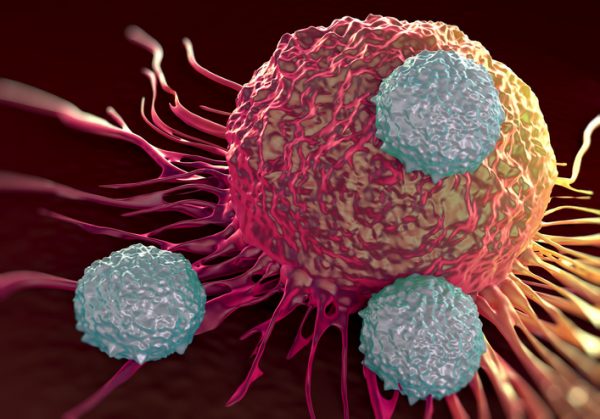
The Centers for Medicare and Medicaid Services has not provided drugmakers with any clues as to its reasons for delaying its eagerly awaited national coverage determination for CAR-T cell therapies, nor has it given them a timeline for when the NCD will be issued, MedCity News has learned.
Nearly a month ago, on May 17, when CMS was to issue the NCD, the agency instead released a one-sentence press statement reading, “CMS will not be issuing a final National Coverage Determination on CAR T-cell therapy for cancer today, but a decision is forthcoming.”

NEMT Partner Guide: Why Payers and Providers Should Choose MediDrive’s TMS
Alan Murray on improving access for medical transportation.
A CMS spokesperson referred to the May 17 statement in response to a request for comment.
An NCD is a determination of whether Medicare will pay for a product or service. Technically, Medicare is already covering the two Food and Drug Administration-approved CAR-T therapies, namely Novartis’ Kymriah (tisagenlecleucel) and Gilead Sciences’ Yescarta (axicabtagene ciloleucel), both of which are approved for adults with diffuse large B-cell lymphoma. However, an NCD would provide consistency in coverage across the country, improve patient access and ensure appropriate evidence generation, CMS said in February.
In an emailed statement, the Alliance for Regenerative Medicine said it hoped CMS would provide transparency and clarity around its decision making and issue the NCD without further delay. “The continued lack of an NCD from CMS delays answers to concerns regarding patient access to CAR-T therapies – specifically, not limiting access to hospitals, enabling coverage to earlier-stage patients without relapsed or refractory cancers, and certifying the establishment of a patient registry,” said ARM director for U.S. policy and advocacy Rob Falb. “In ARM’s original comments submitted in March, we urged CMS to strongly consider the impact the details of their decision would have on patient access, and to act quickly by the statutory deadline of May 17.”
Beth Roberts, a partner at the Washington law firm Hogan Lovells, noted that such delays from CMS are rare, previously occurring in cases like when comment periods are extended. So it is unusual for the statutory deadline to be missed, she said in a phone interview.
Other CAR-T therapies in late-stage clinical development include Celgene subsidiary Juno Therapeutics’ lisocabtagene maraleucel, also for DLBCL, and bb2121, a CAR-T for multiple myeloma under development by Celgene and bluebird bio. Johnson & Johnson’s Janssen subsidiary is also developing a CAR-T for multiple myeloma, LCAR-B38M, which it licensed from Nanjing, China-based Legend Biotech.
Some of the provisions of the proposed NCD have nevertheless attracted criticism, like the requirement that CAR-Ts be administered in a hospital setting and only to patients with relapsed or refractory disease. For example, the hospital requirement would limit or cut off access for patients who do not live within the vicinity of a large medical center, said Dr. Jeff Sharman, a community oncologist in Eugene, Oregon, who has participated in CAR-T cell trials. “In Oregon, that would by definition restrict access to a small number of hospitals in the Portland marketplace,” he said in a phone interview. “You can drive nine hours and still be in the state of Oregon, making [CAR-T] inaccessible to many patients who can potentially benefit, in part because those patients who receive it have to remain within a 30-minute vicinity a month after therapy.”
The high cost of CAR-T therapies comes mainly from two sources: the list price for the therapy itself and also the cost of supportive care for dealing with potentially dangerous side effects. Kymriah and Yescarta carry list prices of $373,000 for DLBCL, while Kymriah costs $475,000 for an additional indication, acute lymphoblastic leukemia in children and young adults. On top of that, the supportive care costs – for dealing with side effects like cytokine release syndrome and neurological toxicity – can easily equal or exceed the list price itself, adding a significant level of complexity to how the therapies can be covered.
Photo: royaltystockphoto, Getty Images








